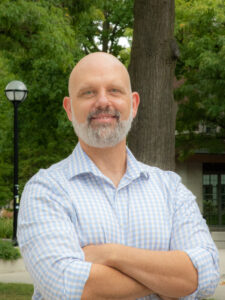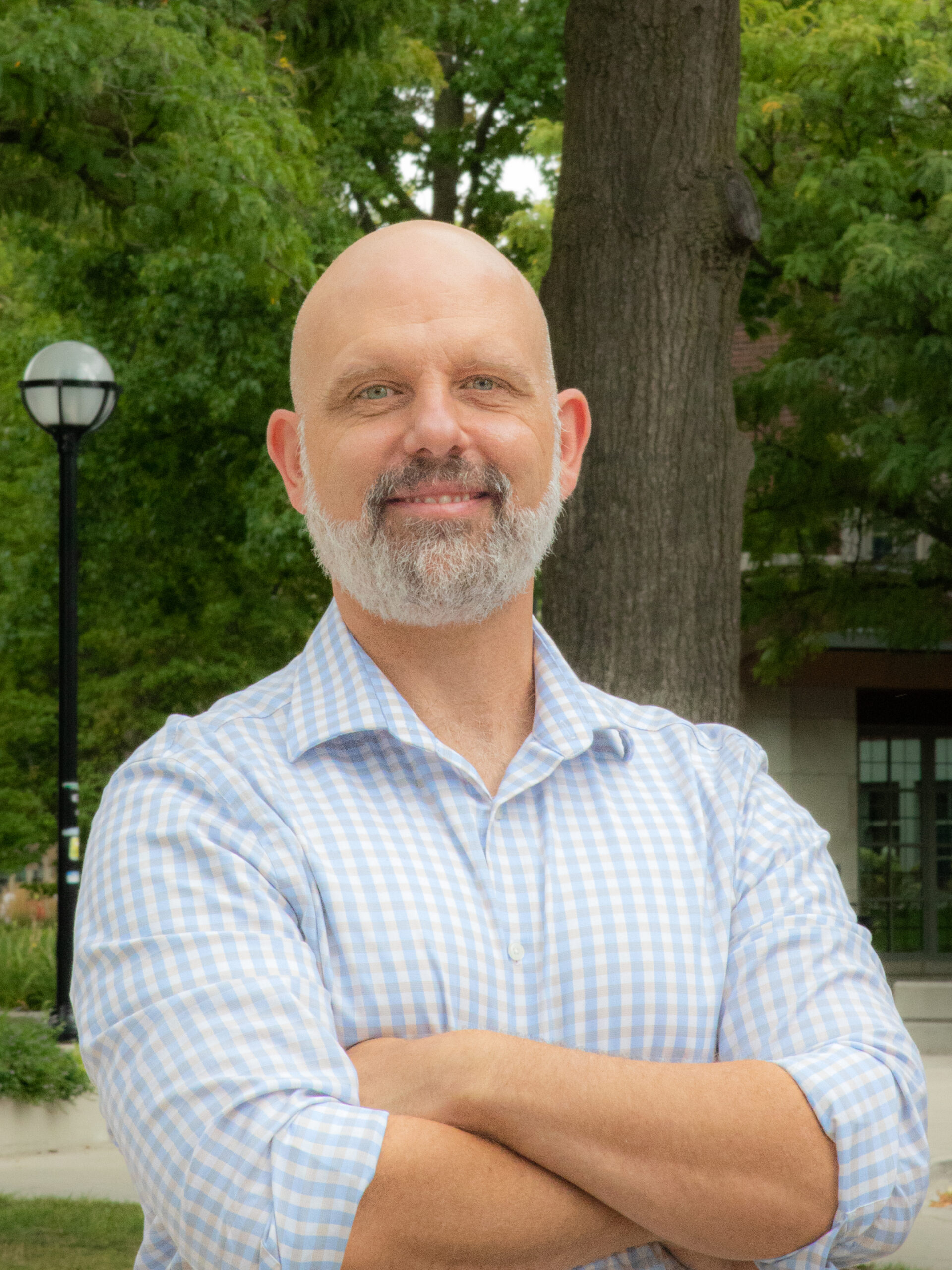
When I look back, I am profoundly grateful and humbled by all of the people, like Dr. Nader, who took the time to see my potential and to help me develop it. My whole purpose in SOUL is to do the same for first-gens here at UM – to give a little back of what was given to me.
Matt
Share Your Story
Although my parents always supported my education and stressed its importance, they also always told me that there was no money for college. Due to budget cuts, my high school had no guidance counselors who might have told me that I could apply for scholarships, financial aid, or student loans. So I graduated high school not really knowing what to do with myself. I spent a year at community college but with no real plan or any idea of what to do with my life. For the next several years I worked and traveled. I worked on farms (in the U.K.), tended bar, worked in kitchens, grocery stores, warehouses, and basically all manners of jobs. I found myself homeless twice – once living out of my car and once truly homeless, when I slept in parks and any out-of-the-way place I could find. When I turned 25 I had an opportunity to go fish salmon commercially in Alaska. Before I left, my uncle pulled me aside and said “What are you doing, Matt? You’re too smart for this. You need to go to college.” Mind you, there’s nothing wrong with any of those jobs, but my life had been very precarious. I worked 12+ hour days for 4 months fishing salmon and came home with $2500. The fishery had been long over-fished. I came home and decided to start back again at community college. I majored in Anthropology and eventually transferred to UC Berkeley. At Cal I met an incredible set of people all thinking about and working on exciting things. One of the most important things I ever did was go to my professor’s office hours just to introduce myself. I had nothing to say, but I was told that was important, so I went. One professor, Dr. Laura Nader, took an interest in me. She told me that I should turn the final paper I that I had written for one of her classes into an honor’s thesis as her advisee. I did so and wound up graduating UC Berkeley with Highest Honors and a High Distinction in Academic Scholarship. She would later write me a key letter of recommendation for graduate school. I came to the University of Michigan to complete my PhD in Sociology. As a graduate student here, in collaboration with Dr. Sandra Levitsky and a fellow graduate student who is now Dr. Shauna Dyer, I started the Sociology Opportunities for Undergraduate Leadership (SOUL) Program. SOUL is a first-gen serving success program aimed at first-generation college students in Sociology. I hope to expand into other departments soon! When I look back, I am profoundly grateful and humbled by all of the people, like Dr. Nader, who took the time to see my potential and to help me develop it. My whole purpose in SOUL is to do the same for first-gens here at UM – to give a little back of what was given to me.
Your advice for other First-Gen students
1. Go to office hours – even if you have nothing to immediately discuss. If you have nothing else, ask a professor about their research! We love talking about our research. 2. Never doubt why you’re here. You didn’t sneak in. It wasn’t an accident. The admissions committee identified you as among the best and brightest! 3. College is about much, much more than taking classes and getting grades. Take advantage of the many opportunities that you have here! It’s one of the reasons you come to a school like the University of Michigan. 4. Socialize broadly if possible. 5. Take chances and trust yourself to figure things out. As a first-gen, you’ve had to figure a lot of things out on your own. Whether you realize it or not, that’s a real skill. Use it. 6. Finally, think actively and reflectively about the skills you developed in getting here. You won’t stop being a first-gen once you graduate. You will be a first-gen lawyer, lab scientist, doctor, social worker, academic, or whatever career you pursue. The skills and talents that got you here will serve you throughout your life. They’ll do so even more strongly if you know what they are and take the time to develop them further.

